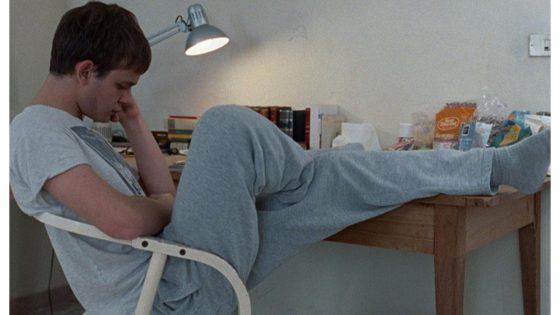Nobody talks much about the age 19. It doesn’t come with the exciting avalanche of adult rights that come with turning 18, or the milestone symbolism of 21. You’re technically still a teenager but don’t feel like one; nonetheless, the looming onset of your twenties is daunting, as if a chapter of your youth is about to close. It’s a corridor age, in other words, and Leonardo, the oh-so-19-year-old protagonist of Italian writer-director Giovanni Tortorici‘s exceptional debut feature “Diciannove,” is feeling its transitional, overlooked, neither-here-nor-there angst.
As Leonardo stumbles through his first year of college, chasing some clear idea of who he’s supposed to be, the secure floor of childhood falls away beneath him, while adulthood hovers tauntingly out of reach. Tortorici evidently remembers that disorienting sense of being released (or perhaps abandoned) into the world before you’ve quite found yourself; if you don’t, his funny, nervy, aptly unformed film will give you quivery flashbacks. It’s an auspicious arrival for both the filmmaker and his intense, mercurial young star Manfredi Marini, who holds the camera with the guilelessness of a newcomer and the ease of a natural.
Produced by Luca Guadagnino, for whom Tortorici previously worked as an assistant director, “Diciannove” (Italian for “nineteen,” and apparently being kept as the international title) seems like familiar fare on paper: another coming-of-age study centered on a coltish but charismatic teen with inchoate desires, big ideas and much to discover on all fronts. What makes it distinctive and unusually authentic within that subgenre is its avoidance of the neatly poignant growth arc that tends to lend such stories their spine. “Diciannove” zig-zags tumultuously with Leonardo’s erratic moods and impulses, bringing him no dewy life lessons or self-realisations — just the irregular fragments of knowledge and sometimes grim lived experience that eventually make up a person.
The film introduces us to Leonardo on the brink of what should be a formative life change: packing his bags to leave the family home in Palermo for London, where he’s due to start a business degree, as his mother (Maria Pia Ferlazzo) frets with the neurotic air of an imminent empty-nester. It’s a sizable step out into the world for someone who’s grown up entirely on an island, and Leonardo — who’s bright, curious, well-read and, we’ll soon learn, getting to grips with his nascent queerness — clearly wants to be a part of something bigger. But he’s apprehensive about the trip, and subject to severe nosebleeds that seem a manifestation of his bottled-up anxieties.
Arriving in London, he’s greeted by his older sister Arianna (Vittoria Planeta, wonderful) as one prison escapee might complicitly welcome another. (Credit to DP Massimiliano Kuveiller for capturing the jolting contrast in light between bleachy Sicilian sun and the the British summer drear, though for Arianna, it’s a gray fug of freedom.) Taking a room in her dingy but central Hoxton apartment, he’s initially swirled up in Arianna’s big-city lifestyle of clubbing, binge-drinking and casual sex, though the glow wears off soon, and his naïvete is exposed: He can’t hold his liquor, and his housekeeping abilities are a veritable health hazard.
More crucially, he finally admits to himself that he has zero interest in studying business, while he’s entirely too far from home to pursue his real passion: Italian literature. With one elegant cut — Marco Costa’s spry editing is attuned to the pace and chaos of youthful whims — he’s on a train to the Tuscan university town of Siena, where he’s enrolled in a literary degree program. It’s a victory for personal autonomy, but that’s not to say Leonardo’s life will simply slot into place from here on out. He’s still insecure and socially ungainly, and soon enough, he’s managed to repel his roommates, rebuff a potential friend group and aggravate his professors, whose textual readings he deems fusty and off the mark. In some ways, he’s right; in others, he’s not as brilliant a thinker as he’d like to believe.
But hey, at 19, how many people are? Carrying himself with a shy person’s defensive approximation of swagger, Marini’s lovely performance balances what’s relatably vulnerable about Leonardo with his ornery peculiarities, and his sometimes-healthy ego with his lonely self-doubt. When two passing girls remark that he’s cute — and he is, maybe a little more than he knows — his bashful-smug blush as he thanks them is a thing of beauty.
Tortorici’s filmmaking, too, captures the character’s restless contradictions, roving from straightforward vérité to jittery montage to a flourish of animation as Leonardo tries out various versions of himself. Nothing much is resolved by the end of “Diciannove,” just as nothing much is resolved when you finally leave teendom for your twenties. Leonardo may be distracted by exams and cruising apps and crises of confidence, but he still has time to seize the day.
Source Agencies



